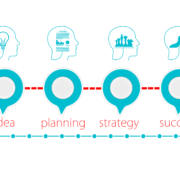The Importance of Relapse Prevention
Recovering from addiction is a challenging process, and it becomes even more complex when both partners in a relationship are struggling with substance abuse. While rehab programs provide a solid foundation for recovery, it is crucial for couples to actively work on relapse prevention to maintain their sobriety and strengthen their bond.
For couples in Fresno, California, the path to lasting recovery is within reach. By understanding the triggers that can lead to relapse and implementing effective strategies to combat them, couples can create a supportive environment that promotes long-term sobriety.
Identifying Triggers Together
One of the first steps in relapse prevention is identifying the triggers that can lead to substance abuse. Triggers can be internal or external factors that evoke cravings or negative emotions, making it more difficult to resist the urge to use drugs or alcohol. By identifying triggers together, couples can develop a deeper understanding of each other’s vulnerabilities and provide the necessary support to overcome them.
In Fresno, California, Couples Rehab offers specialized programs that focus on identifying triggers and developing personalized strategies for relapse prevention. Through individual and couples therapy sessions, couples can gain insight into their unique triggers and learn effective coping mechanisms to navigate challenging situations.

Staying Strong After Rehab
Completing a rehab program in California is a significant accomplishment, but it is essential to remember that recovery is an ongoing process. Staying strong as a couple after rehab requires dedication, open communication, and a commitment to personal growth.
Couples in Fresno can benefit from ongoing support and guidance from Couples Rehab. Through regular counseling sessions and support groups, couples can stay connected to a community of individuals who understand their struggles and can provide encouragement and advice.
Mutual Support in Recovery
Support from a partner can be a powerful motivator in maintaining sobriety. By fostering an environment of mutual support, couples can strengthen their bond and increase their chances of successful recovery.
Couples Rehab in Fresno emphasizes the importance of mutual support in recovery. Through couples therapy and group activities, couples can learn effective communication techniques, set healthy boundaries, and develop strategies to support each other’s sobriety goals.

Relapse Prevention Strategies
Relapse prevention strategies are essential tools for couples in Fresno to maintain their sobriety. These strategies can include:
- Developing a relapse prevention plan together
- Practicing self-care and stress management techniques
- Building a strong support network
- Attending regular counseling sessions
- Engaging in healthy activities and hobbies
By incorporating these strategies into their daily lives, couples can navigate challenges and triggers more effectively, reducing the risk of relapse and strengthening their commitment to a sober lifestyle.

Take the First Step
Staying strong as a couple after rehab requires dedication, open communication, and a commitment to relapse prevention. In Fresno, California, Couples Rehab offers specialized programs that focus on identifying triggers, providing mutual support, and implementing effective strategies to maintain sobriety. Contact us today to build a healthier, more fulfilling relationship and thrive in their recovery journey.
FAQ’s
Q: What role do triggers play in addiction recovery for couples?
- A: Triggers are cues or situations that can evoke cravings and lead to relapse. In couples’ addiction recovery, identifying and understanding triggers is crucial for building a strong foundation for sustained sobriety.
Q: How can couples recognize and manage triggers in their daily lives?
- A: Couples can recognize triggers through self-awareness and open communication. Once identified, they can develop coping strategies, such as mindfulness techniques, to manage triggers and prevent relapse.
Q: Are there common triggers that couples in addiction recovery should be aware of?
- A: Triggers vary for each couple but can include stress, relationship conflicts, exposure to substances, and environmental cues. Awareness of personal and shared triggers is vital for effective relapse prevention.
Q: Can attending couples therapy help in identifying and managing triggers?
- A: Absolutely. Couples therapy provides a safe space to explore individual and shared triggers. Therapists guide couples in developing coping mechanisms, improving communication, and fortifying their relationship against relapse triggers.
Q: How important is communication in preventing relapse triggers among couples?
- A: Communication is paramount. Couples need to openly discuss their triggers, vulnerabilities, and concerns. Healthy communication fosters understanding and enables couples to support each other in avoiding potential relapse triggers.
Q: Are there lifestyle changes that couples can make to minimize exposure to triggers?
- A: Yes, lifestyle changes such as adopting healthier routines, engaging in positive activities together, and creating a sober-friendly environment can significantly reduce exposure to triggers and enhance relapse prevention.
Q: Can individual triggers affect the overall recovery journey of a couple?
- A: Individual triggers can impact the couple’s recovery journey. It’s essential for both partners to address personal triggers collaboratively and develop strategies that support each other’s well-being.
Q: How does relapse prevention planning factor into couples rehab programs?
- A: Relapse prevention planning is a core component of couples rehab. Programs often include specialized sessions to create a detailed plan that addresses triggers, warning signs, and actionable steps to prevent relapse.
Q: What aftercare resources are available for couples to continue their relapse prevention efforts?
- A: Aftercare resources may include ongoing therapy, support groups, and access to educational materials. These resources empower couples to stay vigilant against triggers and maintain their commitment to a substance-free life.
Q: Can couples engage in activities that strengthen their bond and serve as relapse prevention strategies?
- A: Absolutely. Engaging in activities that strengthen the emotional connection, such as shared hobbies, exercising together, and practicing mindfulness, can serve as effective relapse prevention strategies for couples.









